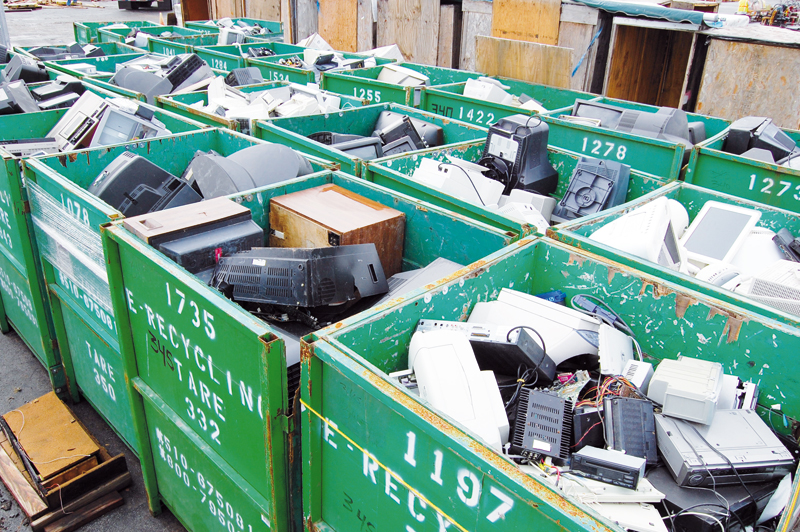

The Gulf region’s largest electronic waste (e-waste) processing plant is slated to come into operation in Salalah in Dhofar Governorate before the end of 2018, according to a key executive associated with the venture. The Evergreen Gulf Recycling Hub (EGRH), currently under development at a site located within the Raysut Industrial Estate, is also the first large-scale integrated e-waste processing and recycling facility in the Sultanate, said Salim Ahmed Qatan (pictured), Chairman of Evergreen Gulf Recycling Hub LLC.

“We are the first and only e-waste management company licensed by the Ministry of Environment and Climate Affairs in the Sultanate of Oman with a capacity to recycle around 10,000 metric tonnes per annum of all kinds of electronic waste,” the Chairman said. “Our longer term goal is to serve as a one-stop destination for the collection and processing of electronic waste serving all the governorates of the Sultanate.”
The Evergreen Gulf Recycling Hub is showcasing its vision and capabilities at the Oman Environment and Environmental Conference & Exhibition which opened at the Sheraton Oman Hotel yesterday. The two-day event has been organised by well-known events management firm Oman Expo in partnership with Be’ah, the Sultanate’s solid waste management flagship.
Speaking to the Observer, Qatan said the Salalah facility will be equipped to handle the full spectrum of electronic waste currently being generated in Oman. The list includes computers, monitors, printers, microwave ovens, television and music systems, all kinds of conventional and mobile phones, fluorescent bulbs, air-conditioner sets, cables, wires, motors, lead acid and alkaline batteries, and so on.
Be’ah, the wholly government-owned holding company tasked with restructuring and managing the solid waste sector, has estimated that around 45,000 tonnes of electrical and electronic waste (WEEE) is generated every year in the Sultanate. While part of this waste stream is trucked by road to neighbouring United Arab Emirates for recycling, a sizable proportion ends up in landfills, say experts.
Earlier this month, Be’ah invited well-established international players and their local JV partners to prequalify for a license to develop and operate a processing facility for WEEE waste in the Sultanate.
The Evergreen Gulf Recycling Hub, said Qatan, is eager to cooperate with Be’ah in the safe management of a waste stream that can have potentially harmful implications for the local environment if poorly handled. Electronic goods typically contain hazardous materials, heavy metals and toxic elements, in the form of lead, mercury, cadmium, brominated flame retardants, and so on. Recovering these unsafe materials for safe disposal is key to the proper management of electronic waste, he noted.
Waste received by the plant will be sorted and subjected to a series of manual and automated processes aimed at maximising the recovery of recyclable items thereby minimising the volume of material going to landfills, he added.
Conrad Prabhu
Oman Observer is now on the WhatsApp channel. Click here



